
Enhancing Student Outcomes and Teacher Practice through Math Mastery: A Comprehensive Study Tour and Curriculum Framework Development.
As a primary school teacher with ten years of classroom experience, I’ve had the opportunity to teach across year levels from Prep to Year 3. Throughout my teaching journey, I’ve developed a strong passion for ensuring that every student feels a sense of success in the classroom and equally, that every teacher feels confident and equipped to deliver high-quality lessons. Over time, I’ve become increasingly interested in how we can bring greater consistency and clarity to the way we teach mathematics across the early years.
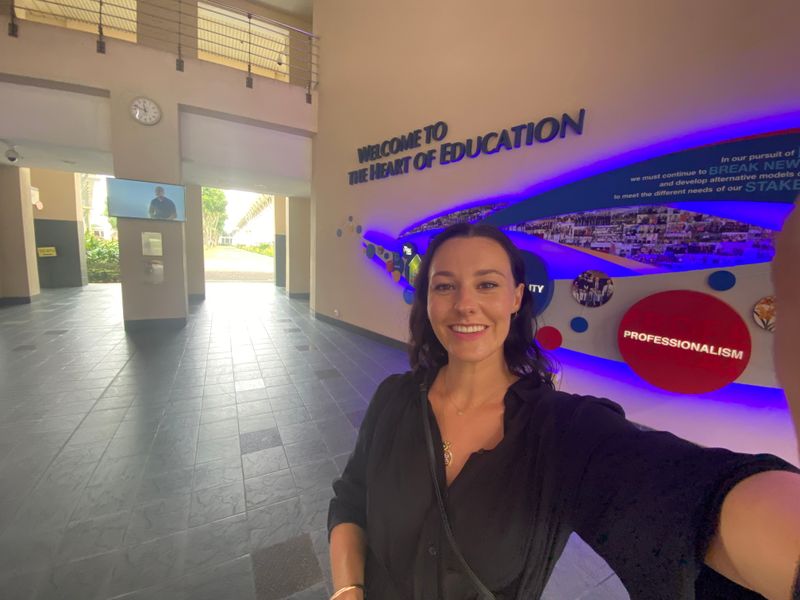
In 2024, I was fortunate to be awarded the inaugural Toowoomba Grammar School Teaching Fellowship to explore this interest more. My proposal, titled Enhancing Student Outcomes and Teacher Practice through Math Mastery: A Comprehensive Study Tour and Curriculum Framework Development, focused on investigating how the Math Mastery approach could strengthen both student understanding and teacher instruction in mathematics. This opportunity took me to Singapore to investigate the Math Mastery approach - an internationally recognised model of mathematics instruction that supports every student to achieve deep understanding through carefully sequenced, explicit teaching.
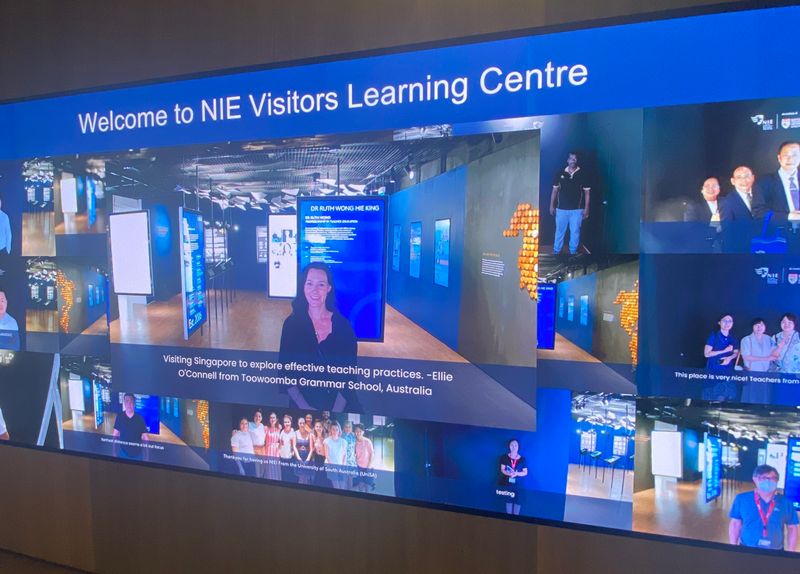
Why Mathematics? Why Now?
Across Australia, there is growing national concern about the long-term decline in mathematics achievement. Reports such as the Gonski Review (2018) highlight that many students are not mastering the basic skills needed for future learning, and that teachers need more explicit, structured tools to support all learners. In the early years of schooling—where concepts are first introduced, and mathematical mindsets are formed—it’s crucial that instruction is clear, consistent and effective. Gaps in understanding at this stage can have long-lasting effects on a child’s confidence and progress. The fellowship was an opportunity to examine international best practices and bring back evidence-informed strategies that could enhance both student outcomes and teacher practice in our own School.
Learning from Singapore: Schools and Insights
During my study tour in Singapore, I visited two leading international schools: Dulwich College and Invictus International School. Both schools use mastery-based approaches to mathematics, with structured, well-sequenced programs designed to develop deep conceptual understanding. At Dulwich College I observed math lessons from Years 1 to 5 that emphasised both mastery and practical application. The classrooms fostered a calm, focused learning environment in which teachers guided students through new concepts using clear, structured instruction, ensuring mastery through modelling, guided practice and checking for understanding before progressing. I also engaged in discussions with the school’s mathematics leadership team, who shared their planning processes and how they support teachers to differentiate within whole-class teaching.
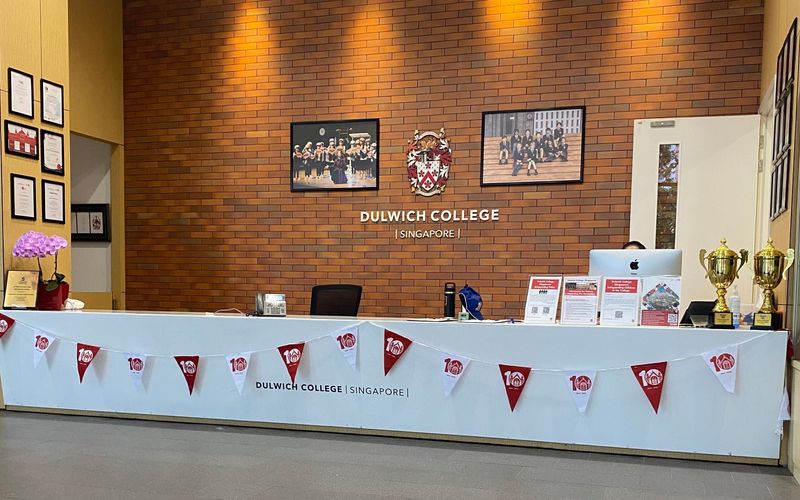
Invictus International School offered a contrasting yet equally valuable perspective. With a diverse cohort of learners and a flexible curriculum model, their team demonstrated how mastery principles can be embedded in a range of contexts. I also had the opportunity to meet with local educational consultants and curriculum developers, who offered insights into how Singapore’s national curriculum supports cumulative learning, daily review and concept mastery from the early years onwards.
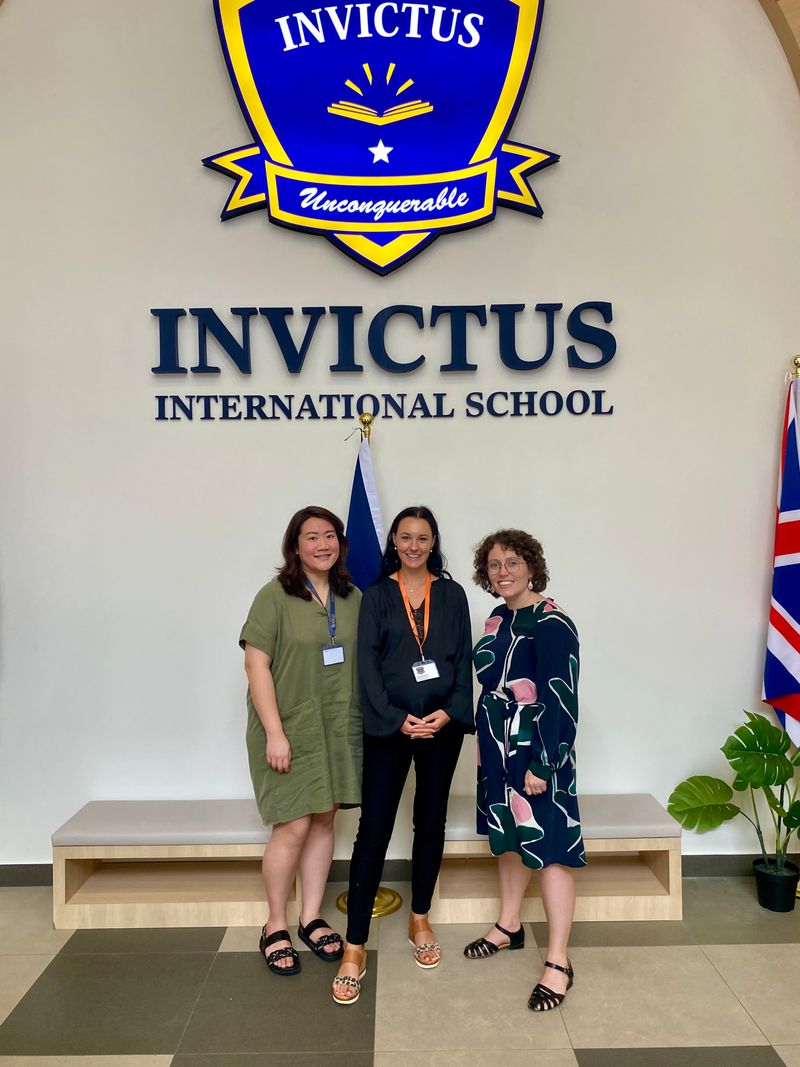
Key Findings: What Makes Mastery Work?
My observations confirmed the power of structured, explicit teaching in building strong foundations in mathematics. These were the key elements that stood out across all settings:
- Clear Learning Objectives
Teachers clearly define what students need to know and be able to do at the end of each unit or lesson.
- Whole-Class Instruction with Embedded Differentiation
Rather than streaming students by ability, mastery classrooms taught concepts to the whole class while using questioning, scaffolding and targeted support to meet individual needs.
- Corrective Instruction
Students who don't achieve mastery receive additional instruction or support to address knowledge gaps.
- Cumulative, Carefully Sequenced Learning
Each lesson built directly on the last, with time allocated for review and consolidation. This ensured that no student was left behind and that concepts were truly understood before new material was introduced.
- Mathematical Language and Reasoning
Teachers modelled precise vocabulary and encouraged students to explain their thinking. This supported deeper reasoning and helped students internalise core concepts.
- Learning Routines
Clear instructional routines and behaviours are established in every classroom, reinforcing expectations and supporting learning.
- Lesson Resources
Hands-on materials and visual examples are carefully chosen to help students connect with new concepts in ways that suit their learning needs.
- Fluency
Essential number facts are practised until automatic, helping students reduce cognitive load, enhancing students’ ability to focus on new and more complex ideas.
- Calm, Confident Learners
Most powerfully, students appeared confident, focused and proud of their mathematical thinking. The clear structure and shared learning journey contributed to a positive and inclusive classroom culture.
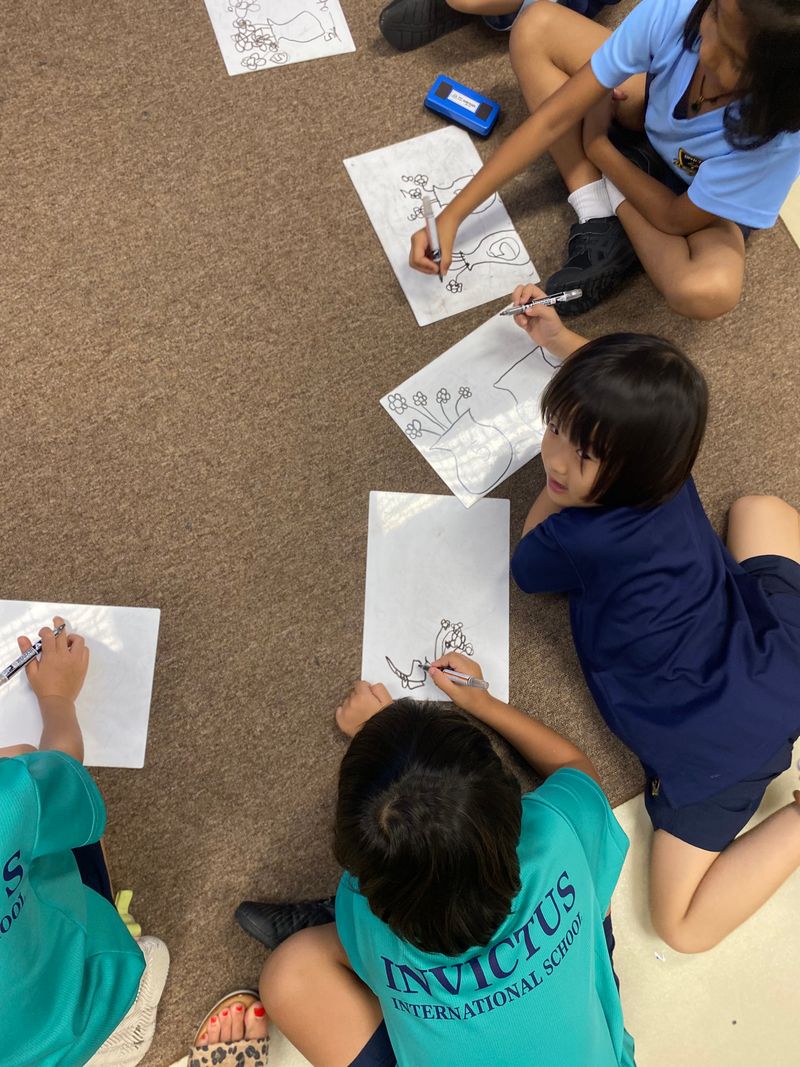
Global Perspective: Insights from Kinder World School
As a part of my research, I was able to engage in a conversation with Peter Baker, Principal Supervisor of 13 KinderWorld International Schools across Vietnam, I was able to dive deeper into how the Math Mastery approach works in large, diverse educational settings. These schools have adopted the Singapore Math model, a mastery-based framework built around explicit teaching and cumulative learning - many of the same principles I explored during my study tour.
Peter shared that their decision to adopt this approach was driven by a need for a consistent, evidence-based program that teachers could pick up quickly, deliver confidently and implement cost-effectively. “We started the explicit teaching model a couple of years back,” he explained. “We call it the KinderWorld Model. Retrieval practice to strengthen knowledge and problem-based application of learning is also included. I think it certainly makes a difference.”
What stood out to me in our discussion was just how closely their journey mirrors our own at TGS. We have already embedded strong practices in literacy through well-structured, whole-school programs that align with explicit teaching and the science of learning. However, mathematics remains an area where we see room for greater consistency and greater gains.
While our data confirms that we continue to perform above the state average in mathematics, recent NAPLAN results highlight a national decline in numeracy - a trend that we are aiming to avoid in our own School’s results. While we continue to do well, we have an opportunity and a responsibility to do even better for our boys. This is not just a local issue. In 2015, the Office of the Chief Scientist collaborated with ACARA to examine schools across Australia that had made significant improvements in numeracy over two years. Their report found that mastery-oriented environments were a consistent feature in high-performing schools (Smith et al., 2028).
When I asked Peter how the performance of his students compared to their peers in Australia, his response was compelling:
“We’ve had feedback from parents - many of whom are teachers - saying that when their children return to Australia, they are at least one to two years ahead in mathematics compared to their peers at home.”
This reinforces what global research has been saying for some time: structured, explicit, mastery-based teaching works. And more importantly, it works for all learners - not just the confident few.
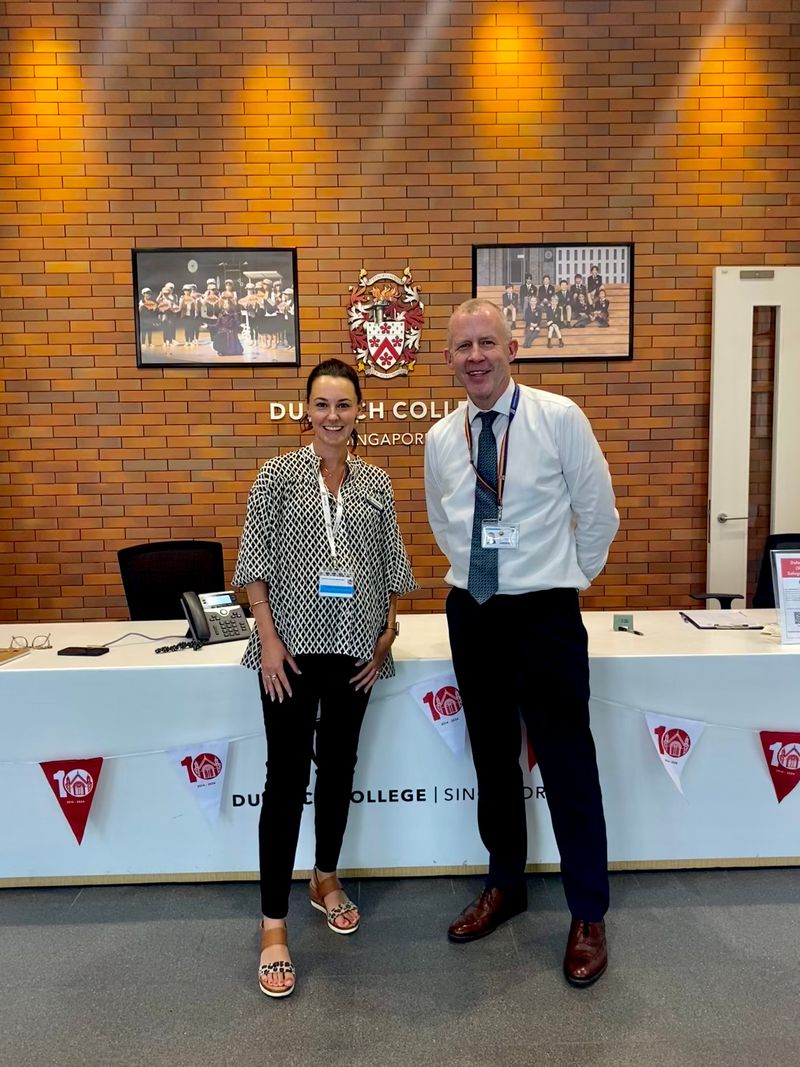
Bringing It Home: What’s Next for TGS?
I’m incredibly grateful for the opportunity this fellowship has provided - not only in shaping and deepening my own practice, but in contributing to a broader, shared vision for mathematics at TGS. This experience reinforced my belief that every student can succeed in mathematics when we give them the right tools, time and teaching. We are now laying the foundations for a clear and united approach to numeracy, one that will equip every boy with the confidence and skills to succeed - not just in the classroom, but throughout their schooling and beyond. And just as importantly, we’re building a community of confident teachers who are equipped to deliver lessons that are clear, consistent and deeply impactful.
I would like to sincerely thank Dr John Kinniburgh for granting me the opportunity to undertake this Fellowship. His support and encouragement throughout the process has been instrumental, and I am truly grateful for his guidance and mentorship. Dr Kinniburgh’s commitment to prioritising high-quality professional development for staff continues to shape a culture of growth and excellence in teaching and learning at TGS.
Latest Blog
TGS Boarding - A Safe, Welcoming and Joyous Community
“From a boarding perspective, enabling young boys to flourish is only achieved within a community that is safe, welcoming, and joyous. These three aspects are at the core of my boarding philosophy and are closely aligned with my fundamental values as a boarding Head of House – acceptance, resilience, and fun,” explains Mr Henry White, Head of Corfe House. Corfe House serves as the entry point for Toowoomba Grammar School’s youngest boarders (Years 5 to 7) and the skills, relationships, and…
Transitioning to Year 7 at TGS
Can you remember your first day in secondary school? It can be a time of mixed feelings - very exciting, but also quite daunting and challenging. Irrespective of whether your son is joining us from the TGS Junior School, or if they are just starting at Toowoomba Grammar School, it can appear to be the start of a long journey. It is a rite of passage in many respects but with this comes increased emotions in response to transition. The boys have a lot to digest with a new, possibly larger campus…
The Boarding Journey
Every parent will have a unique journey with their son whilst he is boarding at Toowoomba Grammar School. I’m Kym Wright, mother of Clancy, who is in Year 12 and this is my journey…. From my very first experience with Toowoomba Grammar School Boarding ten years ago, I had a good feeling straight away that TGS would be the perfect fit for my son. I was picking up my nephew for lunch. He had started boarding at TGS just six weeks prior. It was pouring rain and there were boys enthusiastically…
Building Self-Confidence and Resilience in Year 7s
As your child enters the new and unknown world of secondary school, it is a very important time to nurture the confidence and self-esteem of your son. Adolescence can also be a time of bewildering physical changes and strong emotions, opinions and increasing independence. Nurturing their confidence, self-esteem and assertiveness will go a long way to helping them to have the self-belief to tackle difficult new academic challenges, to developing new friendships and social skills, and…
Introducing our new Head of Year 7 - Jodi Blades
My family moved from Brisbane to Toowoomba when I was ten years of age. I’ve lived here for most of my life, other than to study and begin my teaching career in Brisbane. I lived and worked in London for 18 months before returning to Toowoomba in 2001. With over 20 years’ experience teaching and leading pastoral care programs within independent day and boarding schools, I am dedicated to developing students holistically; the academic, social, emotional, cultural, and physical development of…
Holiday Reading Recommendations
Here is a snapshot; three titles from each year level, and from Head of Library and Information Services, Mr Dan Crook to inspire your choices for holiday reading: Year 7: Teenage Mutant Ninja Turtles - The last Ronin. Hatchet - Gary Paulsen Billy Slaters autobiography - Billy Slater Year 8: The dead of the night (Tomorrow series) - James Marsden Rangers Apprentice The ruins of Gorlan - John Flannagan The Hunger games. -Suzanne Collins Year 9: Back to the Pillaga - Tony Parsons Deadpool Samurai…
Life After School
As children grow and develop, they participate in a range of new experiences, with the “journey” from birth to adulthood being shaped by several awaited and expected transitions. These transitions occur across a range of context and help us to evolve in new environments. It is important to note that transition is associated with a change, which is something that happens for all of us. The concept of transition involves how we process, manage, and respond to the change. As adults, we work hard…
TGS Artist in Residence - Ben Tupas
I’ve been following Toowoomba Grammar School’s exciting Artist-in-residence program for several years. After seeing fellow Toowoomba artists such as Catherine Parker, Alice Weinthal and Vincent Parisi taking up the opportunity and engaging in the program, I decided to apply in 2022 to continue the momentum of my own artist practice. With the four-week residency wrapping up at the end of October, and some time to reflect on the experience I can write that the experience was a valuable…
The Transition to Secondary School
Research shows us that the move from a primary school to a secondary school is one of the most significant life changes that our young men will face. You can help make the transition to Senior School smoother by ensuring that the boys attend the orientation days, practice packing their bags and getting their sports, music, and activities equipment ready. When asked about tips for the boys coming into Year 7, current Year 7 dayboy, Ollie Wells suggests boys should “Be organised. Pack the night…